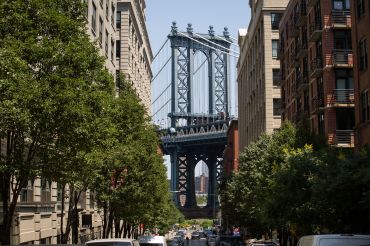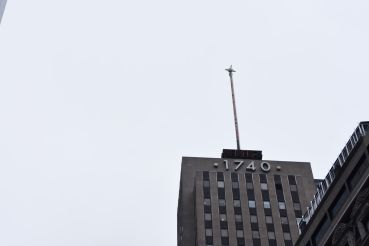 Mayor Bloomberg has come out against a bill extending and significantly expanding the Loft Law, which protects tenants living in illegally converted industrial buildings, many of which are in Brooklyn. The bill passed both the Senate and Assembly earlier this month.
Mayor Bloomberg has come out against a bill extending and significantly expanding the Loft Law, which protects tenants living in illegally converted industrial buildings, many of which are in Brooklyn. The bill passed both the Senate and Assembly earlier this month.
Opposing the bill puts the mayor on the opposite side of tenant groups, who have long pushed for added rights in this area. While many landlords have historically opposed the Loft Law—or at least many aspects of it—the issue is more complex with this piece of legislation, which would extend protections to new buildings not previously covered. (Correction: I initially wrote that the opposition puts the mayor on the side of landlords, which is incorrect, as the large landlord groups, such as the Rent Stabilization Association, have not been vocally opposing the bill.)
Criticism of the measure comes, in part, from advocates of industrial uses, who do not want to see a continued erosion of available space in the city reserved for industrial uses (the bill would effectively grandfather in existing tenants in industrial buildings, changing the use to residential). Instead, it allows those landlords to legally take in higher rents than they would have been able to do for industrial uses.
“It rewards scofflaws,” said Leah Archibald, executive director of the pro-industrial retention group EWVIDCO. “For the guys that did the right thing, that found the industrial tenant and accepted the $10 a foot, it punishes them.”
First passed in 1982 when it was pushed by the Koch administration, the Loft Law applied to a specified set of buildings, many in Manhattan neighborhoods such as Soho and Tribeca. Under the new law, it would be expanded further, allowing tenants who lived in lofts that held two or more families between 2008 and 2009 to file for new protections, which include rent stabilization.
In his letter to the governor, sent Monday morning, the mayor took up this argument, saying the bill would “would hurt our economy by driving manufacturers out of New York City.”
From the mayor’s letter of opposition:
As written, this bill would hurt our economy by driving manufacturers out of New York City, reducing the number of good-paying jobs available to New Yorkers at precisely the time we need them the most. The bill would, in effect, prioritize residential occupancy over industrial use wherever they conflict, sending a clear and discouraging message to current and would-be industrial tenants anywhere in the city. It would prevent the City from taking measures to preserve even small islands of industrial businesses, including the city’s sixteen Industrial Business Zones, which in the aggregate represent a small geographic portion of the city, but which this legislation treats no differently than the rest of the city, including its most residential neighborhoods. The bill would render those zones meaningless.
This, of course, is the same criticism that has been leveled for years at the Bloomberg administration, particularly for its land-use policies in Brooklyn. It has rezoned miles of waterfront to allow residential buildings to rise in the place of industrial buildings.
Still, the administration has shifted somewhat in the past few years, particularly since the recession, warming more to the concept of preserving industry in New York City.
A set of officials who advocate for preservation of the city’s industrial sector–Rep. Jerry Nadler, Rep. Nydia Velazquez, Councilman Brad Lander and Councilwoman Diana Reyna–also oppose the measure, and today wrote their own letter to the governor asking him to block it.
A spokesman for the governor declined to comment on the bill, which was sponsored in the Assembly by Housing Chairman Vito Lopez and in the Senate by Martin Dilan.
[This story has been updated and corrected].


